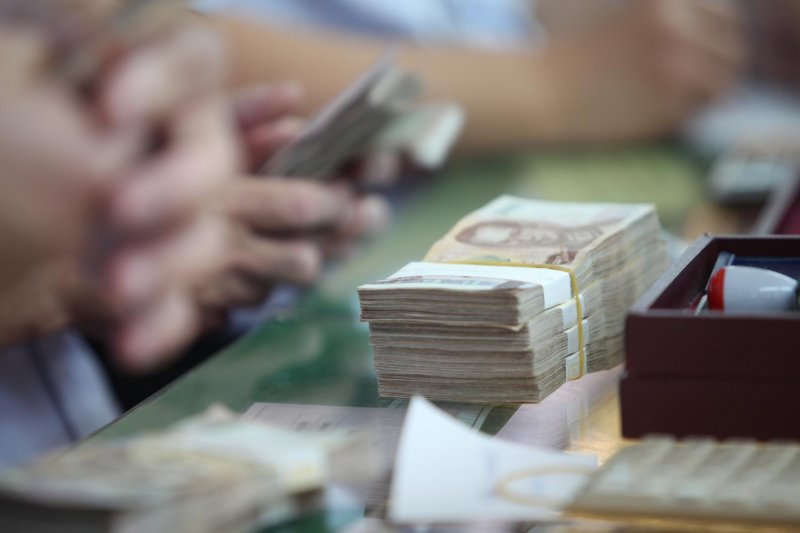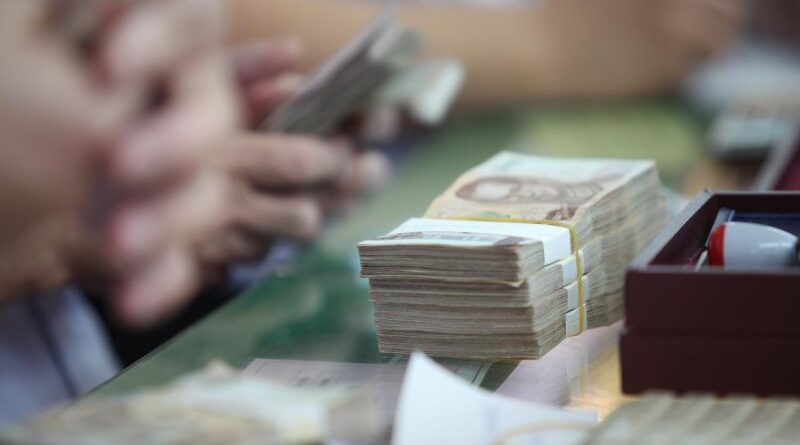The lowdown on net errors and omissions

The baht has continuously appreciated this year, with the Bank of Thailand attributing it primarily to a weaker dollar. Greater clarity in domestic politics lifted investor confidence, and Thailand’s gold trade further supported the currency.
Year-to-date the baht has strengthened by around 7% against the dollar. Foreign capital recorded a net outflow from the Thai stock market, but a net inflow into the bond market.
During Sept 1-17, foreign investors posted a net capital outflow of roughly US$100 million from the Thai stock market, while the local bond market had a net inflow of $534 million, according to the central bank.
Yet observers are curious about whether the stronger baht could be partly attributed to an expansion of net errors and omissions (NEO) in the balance of payments, with some speculating this expansion may be linked to unidentified or “grey” money.
What is NEO?
Chayawadee Chai-anant, assistant governor for corporate relations at the central bank, said NEO refers to statistical discrepancies in the balance of payments. The term reflects transactions between residents and non-residents that cannot yet be classified under specific categories.
These activities may involve trade in goods and services, changes in asset holdings between Thai residents and foreigners, or cross-border payments and currency exchanges.
In practice, it is challenging to capture every transaction completely or in real time. As a result, NEO typically arises from two main factors:
1. Delayed data availability, such as foreign direct investment or profit repatriation by foreign companies, which rely on financial statements submitted to the Business Development Department.
2. Incomplete or imprecise data, such as the broad range of tourist expenditures that are initially estimated through models and later reconciled with survey data from the Tourism and Sports Ministry.
The central bank generally publishes preliminary annual balance of payment data in March of the following year, followed by two revisions: one in September of the same year and another in September of the following year. For example, data for 2024 was first released in March 2025 and will be revised in September 2025 and again in September 2026.
Was the 2024 NEO considered high and a factor driving baht appreciation?
To determine whether NEO is elevated, it is more meaningful to assess it relative to total international trade. Countries with higher volumes of trade and cross-border investment typically record larger NEO.
According to Ms Chayawadee, the baht’s appreciation against the dollar was not the result of an increase in NEO in the balance of payments, as such entries have already been recorded in the balance of payments accounts.
Based on the central bank’s latest data revisions, the amount of NEO in the balance of payments has consistently declined from last year.
In the data revision for September 2024, NEO amounted to $7.3 billion, or roughly 230 billion baht — less than half of the preliminary March 2024 figure of $15.2 billion, according to the central bank.
She said the decline reflected three main factors. The first is lower total import value. The Customs Department adjusted oil import prices to reflect actual data from importers, which were lower than earlier estimates. This raised the current account balance and reduced NEO by about $2 billion.
Second, adjustments to foreign investors’ investment data in Thai businesses, based on financial statements submitted for trade development purposes, reduced NEO by about $2.7 billion.
Third, trade creditors extended payment periods for imported goods to the private sector, easing trade credit repayment burdens in 2024. This reduced NEO by roughly $4.2 billion.
The revised NEO for the balance of payments for March 2025 was around $2 billion, down from $7.3 billion in September 2024.
As a share of Thailand’s international trade, NEO was 1% in 2024, below the 10-year historical average of 1.3% and the global average of 2.4%.
Thailand’s ratio was also relatively low compared with five other middle-income Asian economies: China (2.8%), Kazakhstan (2.1%), Malaysia (1.3%), Mongolia (1.2%) and Indonesia (0.3%).
Comparing Thailand with Indonesia, the latter’s NEO ratio was far lower despite Indonesia’s gross domestic income being larger. According to the Bank of Thailand, each country’s NEO ratio also depends on the openness of its economy.
Moreover, commodity goods account for a larger share of Indonesia’s balance of payments compared with Thailand. As a result, Thailand’s calculation base is larger, leading to a lower ratio, according to the Bank of Thailand.
Is NEO considered new money this year?
The NEO under discussion does not represent a new inflow of foreign currency this year. Rather, it is a component of the 2024 balance of payments that has already occurred. Because these transactions cannot be categorised under specific activities, they are recorded as NEO.
For example, a foreigner buys a condo in Thailand and registers as the homeowner, while his Thai wife makes the payment. In such a case, the transaction could be recorded as NEO, as the homeowner and payer do not match, said Ms Chayawadee.
Recording a transaction as NEO does not have any additional impact on the currency, as the effect on the baht’s movement already occurred when the transaction took place.
The recent strengthening of the baht against the dollar was attributed to three factors: a weaker dollar as investors expect continued Federal Reserve rate cuts, increased investor confidence following greater clarity in Thai domestic politics, and support from Thailand’s gold trade.
The central bank emphasised the importance of distinguishing between NEO in the balance of payments and “grey money”. While it is possible that some NEO may involve grey money, this would require official verification, noted the regulator.
How does the regulator monitor grey money?
The central bank reiterated it does not want domestic businesses or transactions that involve corruption or illicit financial activities, and implements measures to prevent them.
1. Promoting digital finance — encouraging the use of services such as PromptPay to ensure transactions leave a digital footprint that can be traced.
2. Enforcing customer due diligence regulations — these include know your customer, customer due diligence and enhanced due diligence guidelines. These measures also address mule accounts and ensure financial institutions comply with Anti-Money Laundering Office requirements and terrorism financing regulations.
3. Scrutinising proposals for a financial hub — some onlookers have voiced concerns that a hub with relaxed regulations could create loopholes for illegal financial activities. The central bank insists such gaps be addressed in advance.
4. Taking a cautious stance on cryptocurrency — the regulator wants to monitor when these assets are used through unregulated channels, as it poses a higher risk of money laundering due to difficulties in tracking and verification.
Source – Bangkok News




